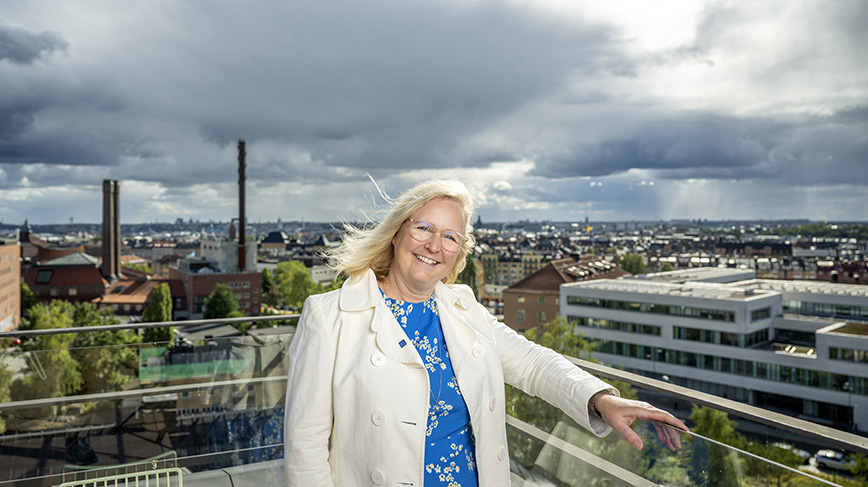Strategy for success in Horizon Europe

After a year with KTH’s new EU strategy, it already appears to be producing results in the 9th EU Framework Programme for Research and Innovation, Horizon Europe (2021–2027).
“Through strong, active participation, we can boost resources for our research, and also have an opportunity to influence the focus of the EU and research, and thereby social development in the long term,” says Annika Stensson Trigell, Vice President for Research.
She says that networking, further strengthening KTH in the international arena, and showing that KTH is an attractive collaboration partner are other benefits.
Three principles
Together with the Research Support Office (RSO), she has developed the strategy following an onboarding process among the management team, KTH’s six research platforms and others. The strategy is based on three bearing principles: to start from KTH’s researchers and support them in different ways as required; to use already established collaborations and networks; and to build internal competence by drawing on existing experience.
“Systematic knowledge and experience transfer is hugely important. We shouldn’t have to re-invent the wheel, but work together for the good of KTH.”
Both the research platforms and KTH’s mainstays (sustainability, equality, digitalisation and internationalisation) appear to match important focus areas of Horizon Europe very well. The Framework Programme is divided into three main areas, within which projects can apply for funding: Excellent Science, Global Challenges and European Industrial Competitiveness, and Innovative Europe. There is a strong focus on sustainability and the global Sustainable Development Goals, as well as on five strategic areas for research and innovation (known as Mission Areas): Adaptation to Climate Change including Societal Transformation; Cancer; Soil Health and Food; Climate-Neutral and Smart Cities; and Healthy Oceans, Seas, Coastal & Inland Waters.
Taking part in expert panels
Alongside an ambition to bring in more money and projects for KTH’s research than in previous framework programmes, KTH’s strategy has some other interim goals. These include a goal to increase the number of ERC projects from the European Research Council, and to make KTH an active participant in the European Commission’s expert panels.
“We have metrics that we link to the goals so we can continuously monitor how well KTH is doing. The EU is one of KTH’s three main sources of research funding, so it has a huge impact on our research. The results so far look very good. KTH’s researchers are active and successful.”
Results to date, September 2022, to name but a few of the many successes:
- 85 awarded projects in total (including Digital Europe and Euratom), of which
- 5 ERC grants
- 18 Marie-Skłodowska-Curie Actions
- 41 collaborative projects, seven of which with KTH as the coordinator
“One constraint for a researcher today, in terms of actively participating, is time. They have to know so much and ideally be everywhere at all times. We therefore have an organisation in support services to facilitate and encourage applications for EU projects,” Annika Stensson Trigell says.
“But of course, part of the reward could be having a chance to test and evaluate your ideas in a broader system and on a larger scale.”
What advice would you give a researcher who’s considering applying for EU funding?
“Well, to use RSO for support, ideally take part in a workshop ahead of different calls, contact other researchers around you and ask what they did. Also use the networks and contacts at our office in Brussels, and the shared office in Stockholm Trio,” says Ms. Stensson Trigell, adding that the Research Assessment Exercise (RAE) also conveys a clear message when it comes to the quality of KTH’s research.
“It’s firm affirmation of our research relevance, excellence and impact, and shows that we’re very much a part of the international scene, as well as our potential,”she says.
Text: Jill Klackenberg
Photo: Mikael Sjöberg

